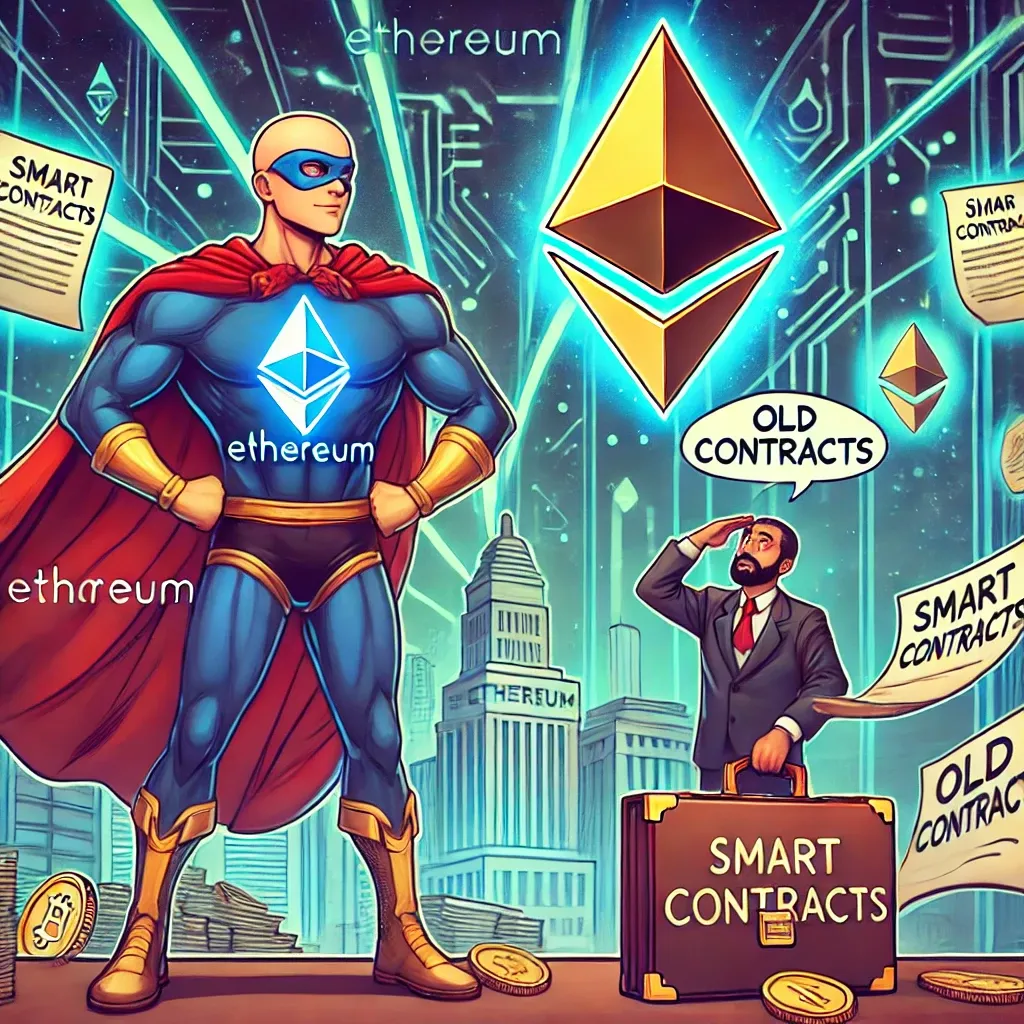Ah, Ethereum! If blockchain technology were a reality TV show, Ethereum would be that unpredictable genius who not only flips the script but also rewrites the whole darn show. One of its most revolutionary contributions? Introducing "smart contracts." But don’t worry, this isn’t some dull legal jargon. Let’s dive in, with humor and wit, to understand how Ethereum turned contracts into brainy bits of code.
What Are Smart Contracts? (And Why Are They Smarter Than Your Lawyer?)
Imagine this: You and your buddy make a bet on who can eat the most pizza slices in 10 minutes. Instead of trusting each other to play fair, you code your agreement into a smart contract. Once the last slice is consumed, the contract automatically sends the winner their prize. No arguments, no awkward standoffs. That’s the magic of smart contracts!
How Do Smart Contracts Work?
Smart contracts are self-executing agreements with the terms written directly into code. They operate on the Ethereum blockchain, ensuring:
-
Automation: No middlemen. Transactions happen like clockwork.
-
Transparency: Everyone can see the terms (goodbye shady fine print!).
-
Immutability: Once set, they’re tamper-proof (unless you’re a time traveler).
Why Ethereum? Couldn’t Bitcoin Do This?
Sure, Bitcoin is the OG of blockchains, but it’s like your grandpa’s old rotary phone—reliable but not exactly feature-packed. Ethereum, on the other hand, is like the latest smartphone: versatile, flexible, and ready to handle those snazzy smart contracts.
The Real-World Uses of Smart Contracts (AKA Where the Magic Happens)
1. Finance and Payments
Ever transferred money internationally? Remember the fees, delays, and forms? Smart contracts laugh in the face of such inefficiencies. They enable instant payments, often at a fraction of the cost.
2. Supply Chain Management
From farm to table, smart contracts can track goods at every step. Imagine knowing your avocado’s journey from tree to toast with just a click.
3. Gaming and NFTs
Own a dragon in a blockchain game? Smart contracts ensure it’s truly yours. Want to sell it for digital gold? That’s just another line of code.
4. Legal Agreements
Okay, they’re not replacing lawyers (yet), but they’re great for automating wills, leases, and even prenups. Romance meets technology!
The Pros and Cons of Smart Contracts
Pros
-
Efficiency: Speedy and cost-effective.
-
Security: Hard to hack (unless you’re the protagonist in a cyber-thriller).
-
Trust: Code is law. No room for betrayal.
Cons
-
Complexity: Writing bug-free contracts requires expert coding.
-
Irreversibility: Made a mistake? Too bad, so sad.
-
Dependence on Code: If the code’s wrong, you’re toast.
FAQs About Smart Contracts
Are Smart Contracts Legal?
Yes, but laws vary by country. It’s best to consult a lawyer (preferably one who’s into blockchain).
Can Smart Contracts Be Hacked?
Not easily, but vulnerabilities in poorly written code can be exploited. Always audit your contracts!
Why Are They Called “Smart” Contracts?
Because “self-executing, blockchain-based agreements” didn’t have the same ring to it.
Conclusion: Are Smart Contracts the Future?
Smart contracts have already disrupted industries and reshaped the way we think about trust, efficiency, and transparency. Whether you’re a tech geek or a casual observer, there’s no denying their impact. And remember, the next time you hear someone mention Ethereum, you’ll know it’s not just another cryptocurrency—it’s the genius behind the brainy contracts that are changing the world, one line of code at a time.
So, are smart contracts smarter than your lawyer? We’ll let you decide. Just don’t tell your lawyer we asked.
